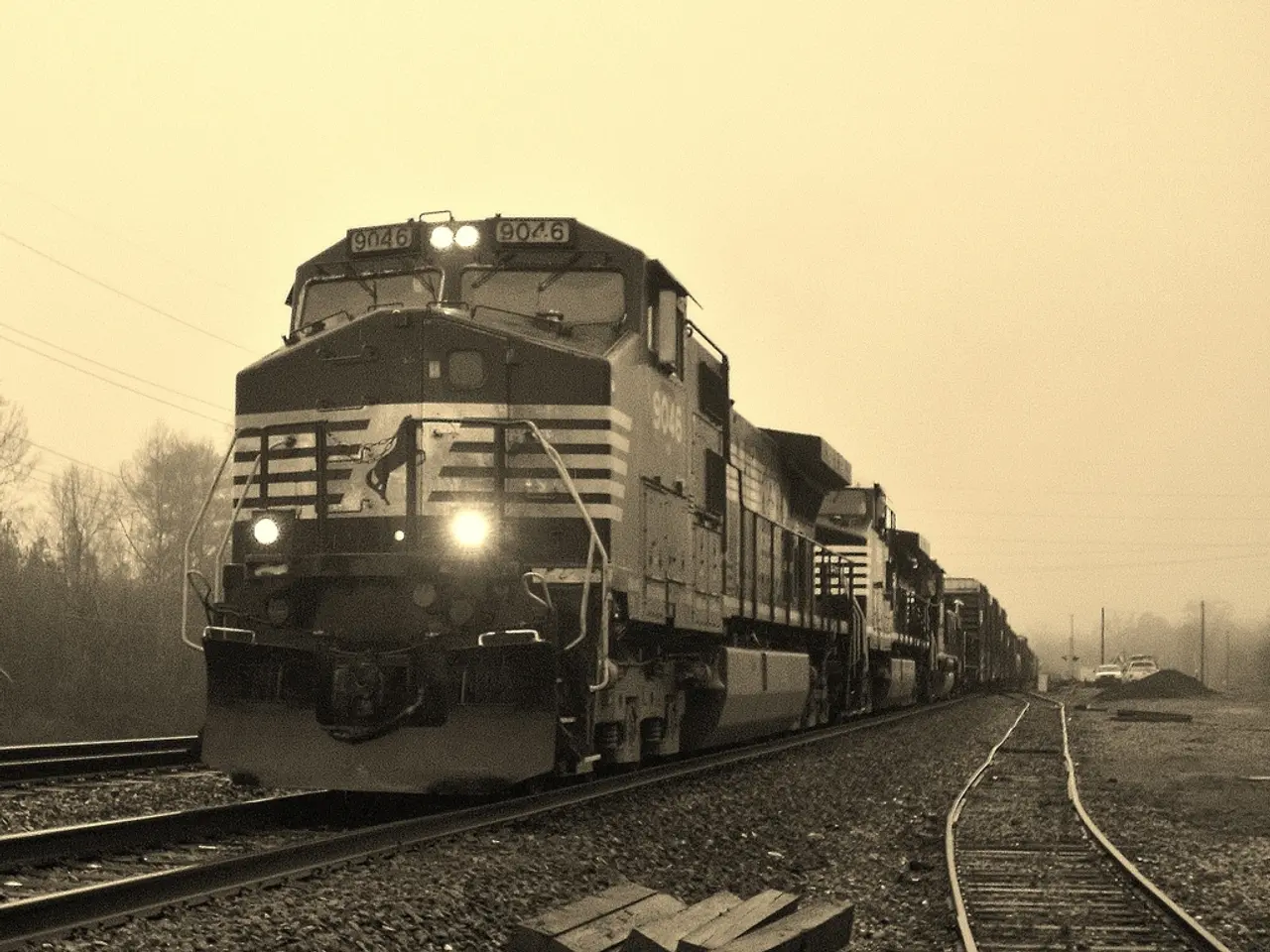Businesses Express Alarmed Over Possible Labour Administration, Anticipating Potential Economic Discouragement
In recent months, UK manufacturers have faced significant challenges due to Labour policies and President Trump's tariffs, leading to a decline in growth and optimism. Despite some signs of stabilisation, the industry remains cautious.
Labour's proposed tax increases, particularly under Rachel Reeves' leadership, have created concerns among manufacturers. The largest industrial companies are bracing for substantial hikes in business rates, estimated at £685 million more starting next year. Although Labour plans to cut energy costs for some manufacturers by as much as 25% starting in 2027, the overall sentiment remains cautious due to these fiscal pressures.
President Trump's tariffs have introduced uncertainty, particularly affecting sectors like the West Midlands, a key manufacturing region. Businesses have reported turnover drops linked not to their operations but to tariff-induced client uncertainty. These tariffs contribute to fears about supply chain reliability and international market instability.
However, there are signs of cautious optimism among UK manufacturers. The S&P Global UK Manufacturing PMI data from June 2025 shows that although output, new orders, and employment continued to decline, the rates of decline slowed. Business optimism rose to a four-month high, with 46% of manufacturers expecting production levels to be higher in a year’s time due to sales recovery, new product launches, and market expansion efforts.
The UK government's Industrial Strategy 2025, which places manufacturing as one of eight priority sectors, aims to boost growth and confidence over the next decade, emphasising innovation, regional regeneration, and export growth. However, manufacturers remain wary, fearing that Labour policies and tariffs could still derail these ambitions.
Despite these challenges, some manufacturers are actively exploring strategic options to ensure global competitiveness. For instance, the carmaker Lotus has announced it will not close its Norfolk factory, but will continue to explore strategic options. Meanwhile, some businesses have reportedly explored moving factories abroad to avoid tariffs and high energy bills in the UK.
Heightened geopolitical tensions, weak global markets, tariff uncertainties, and fears over the direction of future government policy continue to be concerns for manufacturers. The Labour government could potentially hike taxes further in the autumn due to tightness in public finances and demand more from major manufacturers. City analysts have projected tax rises worth up to £20bn this year.
In summary, while Labour's tax policies and Trump's tariffs have put pressure on profits and shaken confidence, efforts such as the UK Industrial Strategy and some easing in inflation have provided glimmers of hope. Manufacturers remain cautiously optimistic but express concern over ongoing geopolitical tensions, policy uncertainties, and trade barriers that could hamper a full recovery.
- Labour's proposed tax increases, led by Rachel Reeves, have created concerns among manufacturers, with the largest industrial companies bracing for substantial hikes in business rates.
- President Trump's tariffs have introduced uncertainty and affected sectors like the West Midlands, a key manufacturing region, with businesses reporting drops in turnover due to tariff-induced client uncertainty.
- The UK government's Industrial Strategy 2025, placing manufacturing as one of eight priority sectors, aims to boost growth and confidence over the next decade, emphasising innovation, regional regeneration, and export growth.
- Heightened geopolitical tensions, weak global markets, tariff uncertainties, and fears over future government policy continue to be concerns for manufacturers, with city analysts projecting tax rises worth up to £20bn this year.




